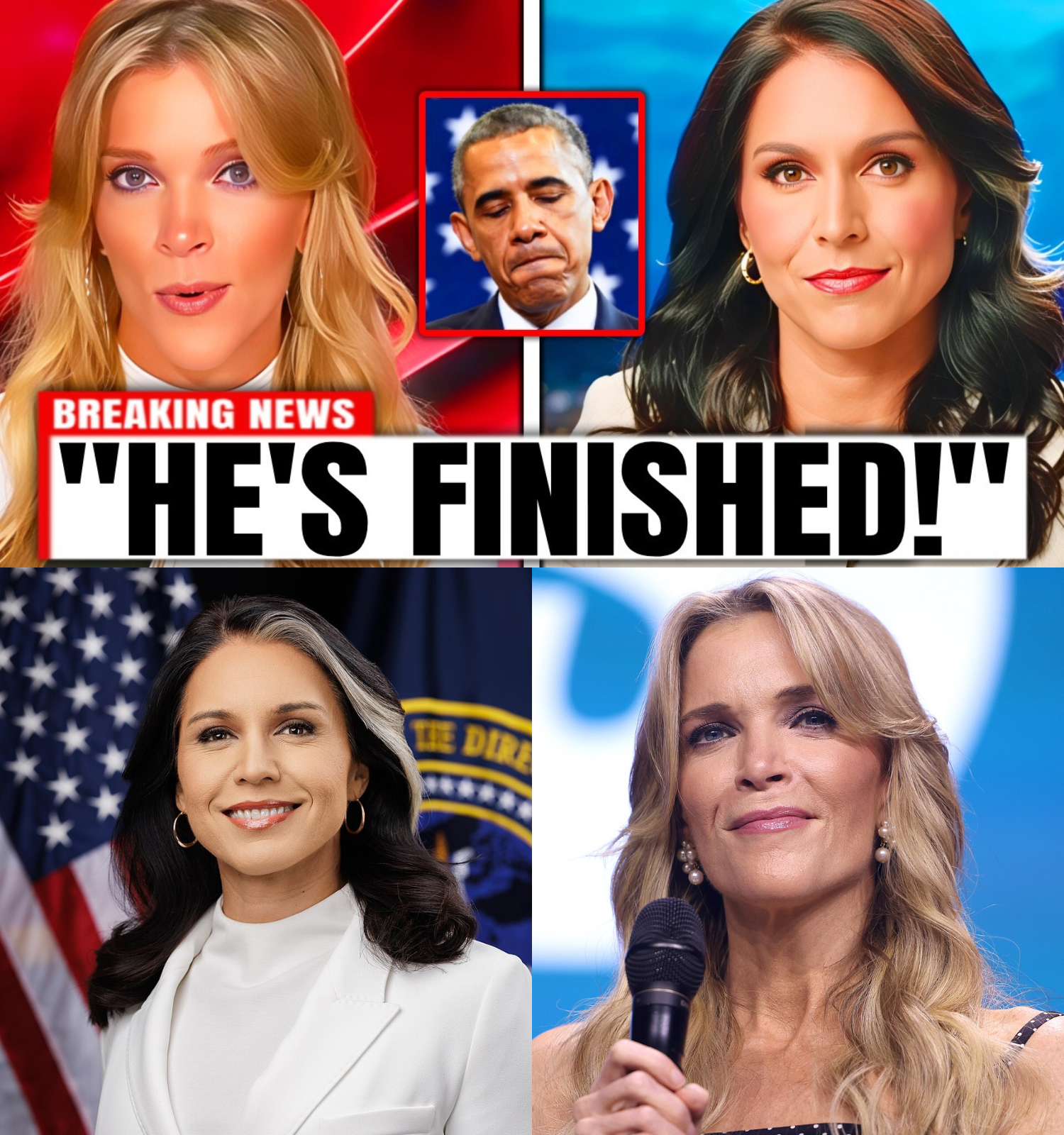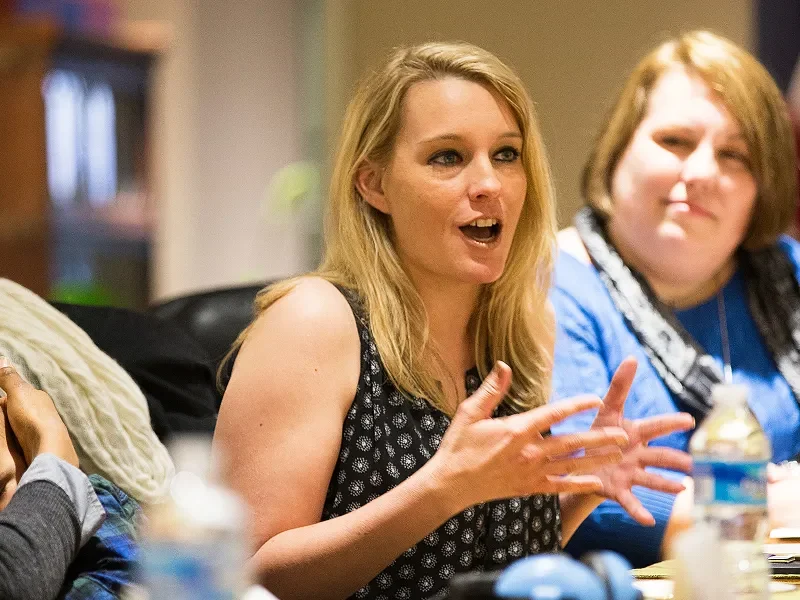Megyn Kelly & Tulsi Gabbard Challenge Barack Obama’s Legacy on Live TV
Introduction
In American politics, very few names carry the weight and influence of Barack Obama, the 44th President of the United States. His historic presidency broke racial barriers, inspired millions with his message of “hope and change,” and left behind a complex legacy that continues to shape political debates today. But not everyone sees Obama’s years in office as untouchable or flawless. Recently, two strong voices in media and politics—Megyn Kelly, former Fox News anchor, and Tulsi Gabbard, former Democratic congresswoman from Hawaii—sat down for a conversation that challenged the mainstream narrative.
The discussion, aired live, was fiery, provocative, and unafraid to probe into the decisions, strategies, and behind-the-scenes politics of the Obama era. While not an exposé of “dark secrets” in the literal sense, their conversation shed light on what they view as troubling aspects of his presidency that, in their eyes, have not received enough scrutiny.
Kelly and Gabbard: Unlikely Allies
At first glance, Megyn Kelly and Tulsi Gabbard may appear to come from very different worlds. Kelly made her career in conservative media, building a reputation as a sharp, sometimes combative interviewer who challenged both Republicans and Democrats. Gabbard, on the other hand, spent years in the Democratic Party, running for president in 2020 as an anti-establishment candidate who emphasized ending “forever wars” and protecting civil liberties.
Yet, their live discussion revealed a striking common ground: both women are deeply skeptical of establishment politics, party elites, and the media’s tendency to shield powerful figures like Obama from criticism.
The Obama Legacy Under Fire
During the conversation, Kelly and Gabbard explored several key areas where they believe Obama’s presidency fell short or misled the American public.
1. Foreign Policy and Endless Wars
One of Gabbard’s strongest critiques focused on Obama’s foreign policy. While many credit him for withdrawing U.S. troops from Iraq and ordering the operation that killed Osama bin Laden, Gabbard argued that Obama also expanded military interventions in Libya, Syria, and beyond.
She highlighted the 2011 NATO-led intervention in Libya, which resulted in the overthrow of Muammar Gaddafi. Gabbard described it as a “disastrous decision” that plunged Libya into chaos, empowered extremist groups, and created long-term instability in the region.
Kelly agreed, pointing out that Obama campaigned as a candidate who would end wars but instead left behind conflicts that dragged on under his successors.
2. The “Deep State” and Surveillance
Both Kelly and Gabbard raised concerns about the Obama administration’s role in expanding government surveillance powers. They discussed how whistleblowers like Edward Snowden exposed mass data collection programs that began under George W. Bush but continued under Obama.
Gabbard emphasized that these programs represented a betrayal of civil liberties, while Kelly noted that mainstream media at the time often downplayed the extent of these revelations to protect Obama’s image.
3. Race, Division, and Media Narratives
While Obama’s presidency was historic for its symbolism, Kelly questioned whether it truly healed racial divisions in America. Instead, she argued, “the narrative of unity often masked growing cultural and political divides.”
Gabbard added that while Obama was celebrated globally, domestically his administration sometimes leaned on identity politics in ways that fueled division rather than reconciliation.
4. The Rise of Elitism in the Democratic Party
Perhaps the most controversial part of the conversation was when Gabbard accused Obama of laying the foundation for a Democratic Party increasingly controlled by elites and special interests.
According to her, Obama’s post-presidency role in mentoring future leaders, including figures like Kamala Harris and Pete Buttigieg, reflects a deliberate attempt to shape the party in the image of the establishment—prioritizing loyalty over independent thinking.
Kelly, nodding in agreement, added that Obama’s influence extends far beyond the White House years: “He’s still running the show, behind the curtain.”
Why Their Words Resonate
The Kelly-Gabbard exchange struck a nerve because it articulated frustrations felt by both conservatives and disillusioned Democrats. For conservatives, Obama’s presidency is often portrayed as a turning point toward greater government control and liberal overreach. For progressives like Gabbard, the disappointment lies in what Obama promised versus what he delivered.
The conversation also tapped into broader themes in American politics: the distrust of media, the rejection of party elites, and the hunger for leaders who speak plainly about uncomfortable truths.
Criticism and Backlash
Of course, not everyone agreed with Kelly and Gabbard’s critiques. Supporters of Obama quickly dismissed the conversation as an attempt to tarnish a widely admired president. They pointed to achievements such as the Affordable Care Act, the economic recovery after the 2008 crisis, and Obama’s emphasis on diplomacy, including the Iran nuclear deal.
Critics of Kelly and Gabbard argued that their framing was overly negative, selective, and designed more for sensationalism than balanced analysis. Yet, the very fact that the discussion generated so much attention shows the enduring impact of Obama’s presidency on America’s political consciousness.
Conclusion
Megyn Kelly and Tulsi Gabbard’s live discussion about Barack Obama was less about unveiling hidden scandals and more about re-examining the legacy of a man often portrayed as untouchable. By challenging his record on foreign policy, surveillance, race relations, and party politics, they reopened debates that many thought were settled.
In the end, whether one agrees or disagrees with their critiques, the conversation highlighted something vital: in a democracy, even the most celebrated leaders must be subject to scrutiny. For Kelly and Gabbard, speaking candidly about Obama is not about personal attacks but about asking hard questions—questions they feel the mainstream media has too often avoided.
Obama’s legacy remains complex, a blend of triumphs and controversies. But as long as voices like Megyn Kelly and Tulsi Gabbard keep pushing the conversation forward, the story of his presidency will never be a closed chapter.


